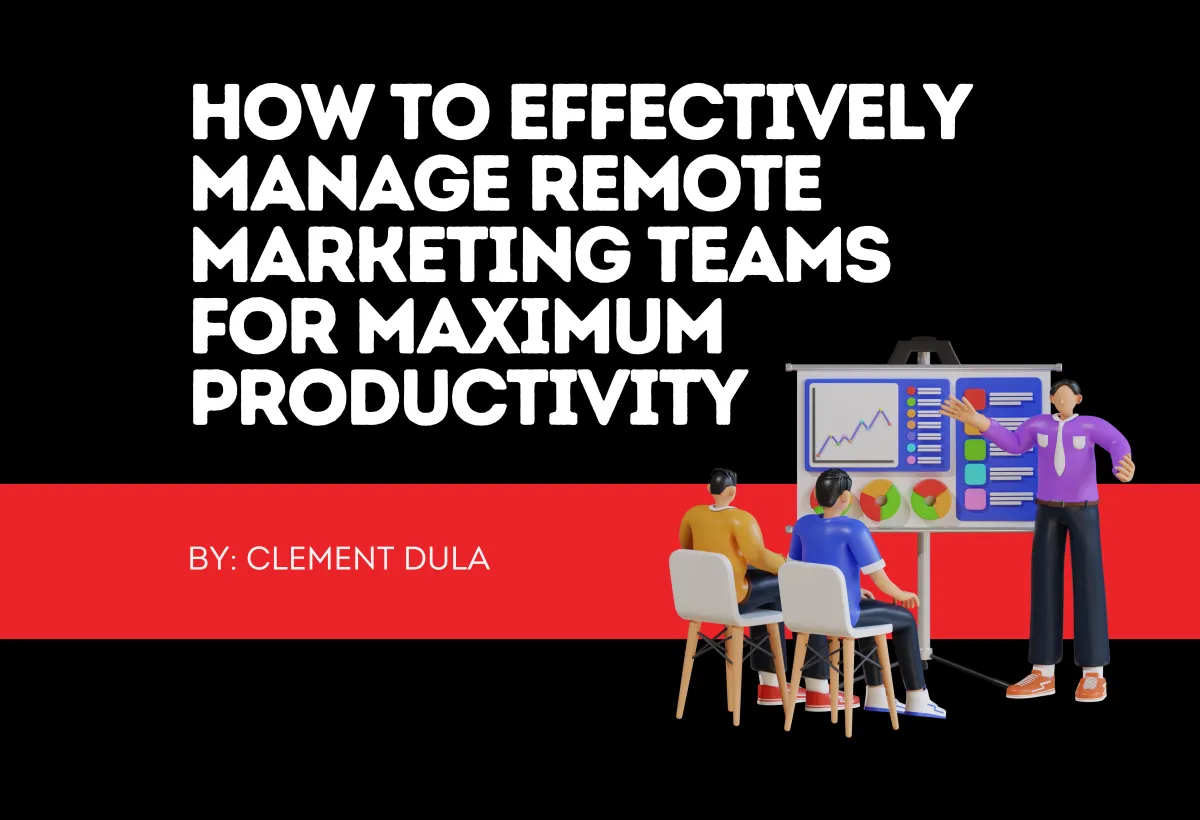
How to Effectively Manage Remote Marketing Teams for Maximum Productivity
With the rise of remote work, managing a marketing team that operates across different locations presents unique challenges. From communication barriers to tracking performance, marketing leaders must adopt best practices to maintain collaboration and productivity. A well-structured approach ensures that remote teams stay aligned with business goals while delivering high-quality results.
1. Establish Clear Communication Channels
Effective communication is the backbone of a successful remote marketing team. Utilizing tools like Slack, Zoom, or Microsoft Teams ensures real-time interaction, while project management platforms like Monday.com or Asana keep workflows transparent. Setting up daily or weekly check-ins ensures everyone is aligned on goals, tasks, and deadlines.
2. Implement Standardized Processes and Workflows
To avoid confusion and inefficiencies, standardized processes must be in place. Having clear Standard Operating Procedures (SOPs) for content creation, campaign execution, and performance analysis ensures consistency. Using frameworks like the Entrepreneurial Operating System (EOS) can help structure these processes, making workflows seamless and scalable.
3. Use Technology to Enhance Collaboration
Marketing teams rely on multiple tools to execute campaigns successfully. Cloud-based platforms like Google Drive for document sharing, Trello for task management, and AI-powered analytics tools help streamline operations. Integrating these tools ensures that team members can access essential resources from anywhere, reducing delays and miscommunication.
4. Foster a Strong Team Culture
Remote work can sometimes feel isolating, so creating a sense of belonging is crucial. Virtual team-building activities, online coffee chats, and recognition programs help strengthen relationships among team members. Encouraging a culture of transparency and open feedback fosters trust and engagement.
5. Set Clear Expectations and Scorecards
Defining clear Scorecards or Key Performance Indicators (KPIs) ensures accountability and performance tracking. Whether it's lead generation, conversion rates, or engagement metrics, setting measurable goals keeps the team focused. Regular performance reviews help address challenges and optimize strategies for better results.
6. Encourage Work-Life Balance and Flexibility
Remote work offers flexibility, but without boundaries, burnout can become an issue. Encouraging a healthy work-life balance by respecting time zones, implementing no-meeting days, and promoting self-care helps maintain team morale and productivity.
Conclusion
Managing a remote marketing team successfully requires a combination of structured processes, strong communication, and a culture of collaboration. By leveraging technology, setting clear goals, and fostering engagement, marketing leaders can ensure their remote teams stay productive and aligned with business objectives.
If you're looking for expert marketing solutions tailored for your vehicle rental business, a well-managed remote team can deliver exceptional results. Reach out to learn how our team can help drive your business growth!

About FLEET SEO
At FLEET SEO, we specialize in helping vehicle rental businesses grow through innovative marketing strategies powered by a dynamic remote team. Our team operates seamlessly across locations, ensuring that every campaign, every project, and every client goal is met with precision and creativity. By leveraging standardized workflows, cutting-edge technology, and a strong culture of collaboration, FLEET delivers real results — helping vehicle rental companies scale smarter and faster.
If you're ready to take your marketing to the next level, connect with the marketing experts at FLEET SEO!





